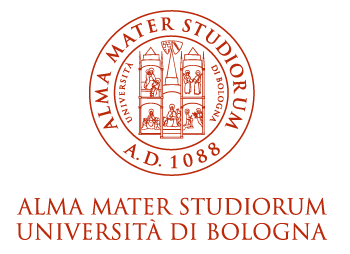Ilaria Vanni Accarigi (School of International Studies, University of Technology Sydney)
In a recent post-US-election article in the LA Review of Books, Bruno Latour reads our current geopolitical landscape in terms of ‘voluntary resignations’ from globalization. According to Latour, this resignation is the result of a lack of connections between two bubbles. One bubble is inhabited by the globalized intellectuals looking at an emancipatory and boundless horizon. The other bubble is populated by ‘those whom globalization left behind’, those retreating in a fictional past of bounded horizons, undisturbed by climate change, and unshaken by fact or science.
Starting from a reflection on these two utopias this seminar attempts to explore positions that offer intellectual and political tools to imagine possible trajectories out of the binary between a world of bounded places and a world of global flows.
In particular, this seminar adopts what Doreen Massey called a ‘global sense of place’, that simultaneously addresses the complexity of cultures, ground their histories, connects their trajectories and appreciates their diverse representations. Where geopolitical paradigms limit space to bounded nation-states, as if homogenous within, research on spatial relations takes into account multiple spatial scales, from the individual, the household and the neighbourhood to global events, networks between world cities, and global concerns of multilateral organisations. In doing so, this seminar will consider the complexity, imbrication and relationality of the global and the local grounding them in a set of cases studies.
At the end of the seminar students will have
This seminar is interactive. Students attending this seminar are required to bring their groups will be set up in the first seminar.
Conceptual framework . Massey: ‘a global sense of place’, trajectories, power-geometry, throwntogetherness. Tsing: friction. Pratt: transculturation.
In class : mapping your own trajectories and creating small working groups. Glossary on google drive. Identifying a possible research topic. Selecting one article for discussion for seminar 2.
Latour, B. ‘Two Bubbles of Unrealism: Learning from the Tragedy of Trump’, Los Angeles Review of Books, 17 November 2017, https://lareviewofbooks.org/article/two-bubbles-unrealism-learning-tragedy-trump/
Lowenhaupt Tsing A (2005) Int roduction. Friction. An Ethnography of Global Connections. Princeton, N.J. and Oxford: Princeton University Press.
Massey D (1991) A Global Sense Of Place. Marxism Today (June): 24–29.
Lowenhaupt Tsing A (2016) The Mushroom at the End of the World: On the Possibility of Life in Capitalist Ruins. Princeton NJ: Princeton University Press.
Massey D (2005) For Space. London: Sage.
Conceptual framework. Embodied engagement. Sensory ethnography. Walking.
Before class : read the article selected by your group, taking notes on the template provided in google drive (if useful).
In class: case studies discussion. Relating the discussion to each group’s topic. Glossary on google drive. Selecting one article for discussion for seminar 3.
Gaytán MS (2004) Globalizing Resistance: Slow Food and New Local Imaginaries. Food, Culture and Society: An International Journal of Multidisciplinary Research 7(2): 97–116. Available from: http://www.tandfonline.com/doi/full/10.2752/155280104786577842 (accessed 7 February 2017).
Low KEY (2015) The sensuous city: Sensory methodologies in urban ethnographic research. Ethnography 16(3): 295–312.
Pink S (2007) Walking with video. Visual Studies, Routledge 22(3): 240–252. Available from: http://dx.doi.org/10.1080/14725860701657142.
Springgay S (2011) ‘The Chinatown Foray’ as sensational pedagogy. Curriculum Inquiry 41(5): 636–656.
Conceptual framework . Reading the urban landscape. Linguistic landscapes. Material culture.
In class : case studies discussion. Relating the discussion to each group’s topic. Glossary on google drive.
Before class : read the article selected by your group, taking notes on the template provided in google drive (if useful).
Krase J and Shortell T (2011) On the Spatial Semiotics of Vernacular Landscapes in Global Cities. Visual Communication 10(3): 367–400. Available from: http://journals.sagepub.com/doi/pdf/10.1177/1470357211408821
Krase J (2009) Contested terrains: Visualizing glocalization in global cities. Open House International 34(3): 65–73.
Pennycook A and Otsuji E (2015) Morning Markets and Metrolingual Multitasking. In: Metrolingualism: Language in the City. London: Routledge, pp. 1-21.
Pennycook A and Otsuji E (2015) Making scents of the landscape. Linguistic Landscape 1(3): 191–212.
Vannini P (2007) Social Semiotics and Fieldwork: Method and Analytics. Qualitative Inquiry 13: 113–140.
Tiny text strategies. Designing a research project roadmap based on the selected topic and writing a draft abstract.
Kamler B and Thomson P (2013) Beginning Work. In: Writing for Peer Reviewed Journals. Strategies for getting published., London and New York: Routledge, pp. 89–106.
Richard Sennett. 11.329 Social Theory and the City. Fall 2005. Massachusetts Institute of Technology: MIT OpenCourseWare, https://ocw.mit.edu . License: Creative Commons BY-NC-SA. https://ocw.mit.edu/courses/urban-studies-and-planning/11-329-social-theory-and-the-city-fall-2005/#
